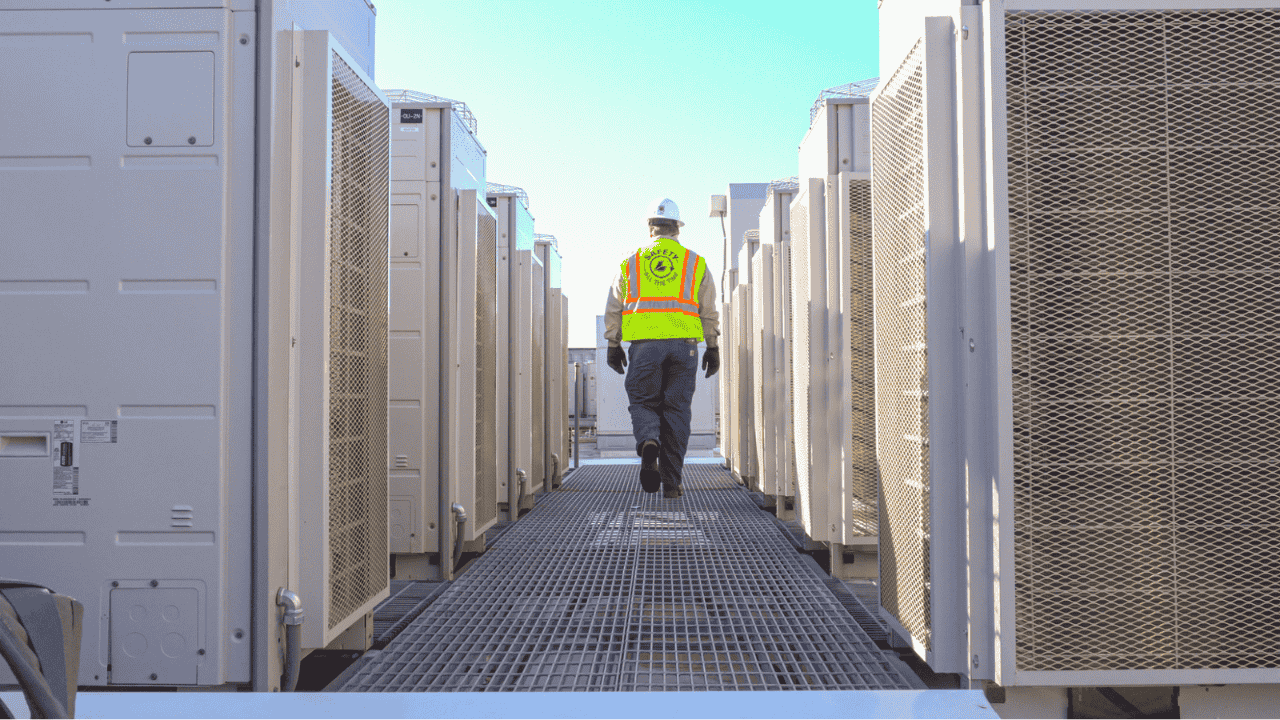HVAC services play a significant role in improving energy efficiency within commercial buildings. Energy costs are a substantial part of a company’s operational expenses, and inefficient heating, ventilation, and air conditioning (HVAC) systems can drive these costs even higher. We will explore how Tempe HVAC services, including regular maintenance, system upgrades, and the integration of modern technologies, contribute to better energy management in commercial spaces. A more energy-efficient building not only reduces operational costs but also promotes sustainability. Through careful attention to HVAC systems, businesses can improve comfort and cost-effectiveness while minimizing their environmental footprint.
Regular Maintenance Reduces Energy Waste
Regular maintenance is one of the most impactful ways HVAC services contribute to energy efficiency. Like any other complex system, HVAC units require periodic check-ups to ensure they operate as efficiently as possible. Without regular maintenance, components such as filters, ducts, and thermostats may become clogged or misaligned, forcing the system to work harder and consume more energy. Routine inspections help identify issues early, allowing for timely repairs or replacements. Cleaning and replacing filters regularly can significantly improve airflow, reducing the amount of energy required to heat or cool a space. In addition, maintaining proper refrigerant levels ensures the system works at peak efficiency, preventing excessive energy consumption from reaching the desired temperature.
Energy-Efficient System Upgrades
Upgrading HVAC systems to more energy-efficient models is another effective way to reduce energy usage in commercial buildings. Modern HVAC systems are equipped with advanced technologies, such as variable speed drives and smart thermostats, allowing for better control and energy conservation. Unlike older systems that often run at a single speed, variable speed systems adjust their operation according to the building’s needs, preventing wasted energy. For example, when the building is unoccupied, the system can lower its activity without completely shutting down, maintaining energy savings while ensuring a comfortable environment upon return. Smart thermostats go a step further by learning the habits and preferences of the building’s occupants adjusting temperature settings automatically to maximize energy savings. These systems can be integrated with building management systems, enabling owners to monitor and adjust HVAC operations remotely, further increasing efficiency and control.
Proper Sizing for Energy Efficiency
One of the crucial aspects of HVAC installation and upgrades is ensuring the system is properly sized for the building. An HVAC system that is too large or too small for the space can lead to inefficiency and excessive energy consumption. A too large system will cycle on and off frequently, using more energy than necessary. On the other hand, a system that is too small will run continuously, trying to meet the required temperature and straining itself to perform at optimal levels. Properly sizing HVAC units ensures the system operates within capacity, providing sufficient heating or cooling while minimizing energy usage. Professional HVAC services can accurately assess the building’s square footage, layout, insulation, and other factors to determine the ideal system size. This tailored approach prevents the need for overcompensating or underperformance, leading to long-term energy savings.
Smart Controls and Automation Systems
Integrating smart controls and automation systems within HVAC services further enhances energy efficiency in commercial buildings. Building management systems (BMS) can connect all HVAC components, enabling a unified approach to energy management. These systems can monitor and adjust temperature, humidity, and air quality based on real-time data, ensuring optimal conditions without unnecessary energy consumption. For instance, automation systems can adjust HVAC settings based on occupancy, time of day, or environmental conditions outside the building, ensuring that energy is only used when needed. By having automated controls, commercial buildings can optimize their HVAC performance and reduce energy waste, lowering utility bills and reducing environmental impact. Integrating renewable energy sources, such as solar panels, with HVAC systems can further enhance the building’s overall energy efficiency.
Airflow Optimization and Insulation
Airflow optimization is another critical component in the HVAC system’s role in energy efficiency. Proper airflow ensures that conditioned air is distributed evenly throughout the building, preventing hot or cold spots that require the HVAC system to work harder to maintain comfort. HVAC services that improve airflow include inspecting and sealing ducts to prevent leaks and ensuring the system is properly balanced. By maintaining consistent and efficient airflow, businesses can avoid the unnecessary energy drain when the system is forced to compensate for airflow imbalances. Additionally, effective insulation helps prevent heat loss or gain, allowing the HVAC system to maintain temperature without overworking. Sealing gaps in windows, doors, and walls can significantly reduce the workload of the HVAC system, as it helps retain the desired indoor temperature without relying on the system for constant adjustments.
HVAC services contribute significantly to energy efficiency in commercial buildings by improving system performance, optimizing airflow, and reducing unnecessary energy consumption. Through regular maintenance, timely upgrades, proper sizing, and integration of smart technologies, businesses can reduce their energy costs while ensuring a comfortable working environment. Investing in energy-efficient HVAC systems results in long-term savings and helps promote sustainability and reduce the environmental impact of commercial operations. As energy costs continue to rise and environmental concerns become more pressing, the role of HVAC services in enhancing energy efficiency is becoming increasingly vital for businesses looking to operate efficiently and responsibly.
